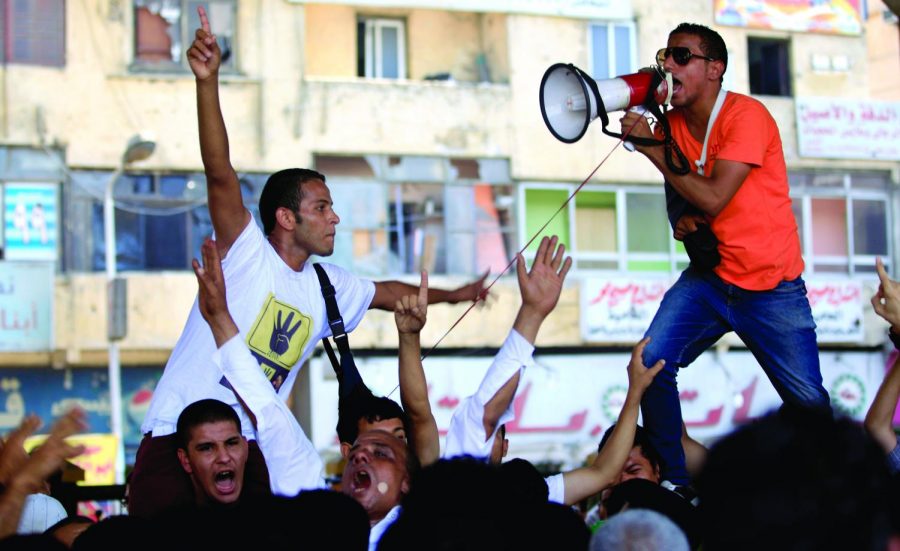Campus community discusses political upheaval in Egypt
August 29, 2013
Although political riots in Egypt are taking place thousands of miles away from Florence, Ala., some students and faculty at UNA believe it is important for members of the campus community to be aware of international news.
“In terms of peace, the situation is changing, and it could be for the better or it could be changing for the worse,” said Leah Graham, professor of political science and adviser to the Model United Nations student group at UNA.
“Egypt is a powerhouse and students should be concerned about what goes on in Egypt, because Egypt can influence the rest of the world. The rest of the world is directly connected to our economic political and ideological power.”
Currently Egypt is in a state of turmoil, due to political uprisings and rapid changes in the holding political power, such as the removal of Egyptian President Mohammed Morsi from office on July 3, Graham said.
Protests that have occurred throughout the summer are largely due to the current instability in Egypt’s government and infrastructure, which has put members of different political parties against each other.
In order to deal with the protests, many political leaders, like some of those of the Muslim Brotherhood, have been imprisoned, Graham said.
“People were put in jail in Egypt for being in alternative parties,” Graham said on the reasons behind the protests.
“This is not religion and non-religion, like the news often portrays; this is leftist-authoritarian parties versus more conservative parties. You can’t really compare it to democrat and republican, but (these parties) are very different (from each other).”
Graham said that although the situation in Egypt has begun to calm down, it is important for students to be aware of how international issues impact the rest of the world.
Egypt should also be important to students because it is the setting of a number of human-rights atrocities, Graham said.
“(Egyptian military) shooting down civilian protesters, putting people in jail for their political beliefs — any of those things are human rights violations,” Graham said.
Josh Smith, a junior, said he believes the situation in Egypt is to a point that warrants U.S. military involvement.
“I have the unpopular opinion that U.S. military should intervene; however it is very unlikely that would happen,” Smith said. “I have followed the events in Egypt for the last two years. To see this political unrest in a ‘democratic’ government is very troublesome.”
Smith said he believes familiarity with international issues should be a priority for college students.
“Very often the discussion of international affairs brings puzzled looks to college students’ faces,” Smith said. “I believe the apathetic or ignorant mindset is plaguing our youth.
“This (ignorance) will in turn create a generation of politicians, law enforcement, military personnel and general population who do not know how to properly respond to foreign civil unrest or simply turn a blind eye to it.”
Muath AlJandal, a Saudi Arabian student at UNA, said although he has friends in Egypt who have had to leave Cairo for safety in recent times, he understands why many students at UNA are unfamiliar with international issues.
“I think it depends if you like politics or (not),” AlJandal said. “The United States is a huge country and (it is hard enough) to catch up with news inside (of America). The world is not small, and (news) can make you sick when you think about these horrible things happening in the world.”
However, students should still be concerned with international news because of how connected people have become through technological advances in communication, AlJandal said.
“It’s easy for all the distractions around us to make us just not care about what else is going on,” said Brittney Mccaig, a senior at UNA. “People may feel that (there is) too much to worry about here. I don’t know about Egypt because I barely know about America, and I live here.”


